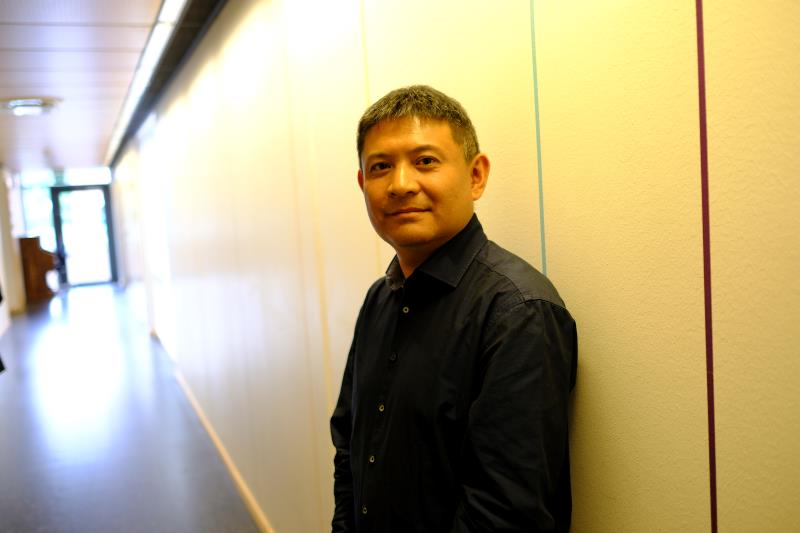
 老网站栏目
老网站栏目  您的位置:首页 老网站栏目 论坛与会议 2017国际高峰论坛 专家简介
您的位置:首页 老网站栏目 论坛与会议 2017国际高峰论坛 专家简介 2017作曲理论学科建设国际高峰论坛专家简介——向民
发布时间:2017-11-10 点击次数:187

向民,中央音乐学院教授、博士研究生导师、曲式与作品分析教研室主任、教育部国家级精品共享课程《作品分析》主持人。2001年在中央音乐学院获得作曲博士学位,曾先后师从杜鸣心、吴祖强教授,日本文化厅、柏林汉斯艾斯勒音乐学院访问学者。在中央音乐学院作曲系教学二十余年,作有各种体裁音乐会作品在国内外上演,并作有影视配乐三十余部。曾获得过教育部“霍英东优秀教师奖”、文化部“全国音乐创作奖(交响乐)”等奖项。2011年开始,参与创建并主持了中央音乐学院音乐分析论坛(FMA)。
Xiang Min is the professor of the Central Conservatory of Music, doctoral tutor, and director of teaching and research section on music analysis. He also once served as the host of <Analysis of Works>, a national sharing course cited by the Ministry of Education. In 2001, he received his Ph.D. degree from the Central Conservatory of Music and was guided by Professor Du Mingxin, Professor Wu Zuqiang successively. And he also was the visiting scholar of Japanese Culture Hall and Hochschule fuer Musik "HannsEisler" Berlin. During the teaching period of more than 20 years at the Central Conservatory of Music, he has created a variety of music works of different genres that are staged at home and abroad. Besides, he has made original scores for more than 30 films and TV series. He has won "Henry Fok Outstanding Teacher Award" of the Ministry of Education, “National Music Award (symphony)" of the Ministry of Culture and other awards and so on. From 2011, he participated in the creation of Forum on Music Analysis (FMA) of Central Conservatory of Music and chaired the forum.
中央音乐学院音乐分析教学情况概述
An Overview of the Teaching Development of Music Analysis of the Central Conservatory of Music
近几十年来,音乐分析已经发展成为一个相对独立的学科,其原因是由于众多理论家的杰出建树,例如申克,艾伦福特等等。而学科的发展又导致产生了更多的理论和理论家,从而对当前音乐学院中的理论教学形成了挑战。主要面对的问题是:什么样的理论是有价值的?理论研究的终极目的在何处?音乐分析与音乐创作,音乐表演之间的关系如何处理?
中央音乐学院作曲系的理论与音乐分析教学具有自己的传统与特色。从历史上延续下来的核心理念是:1,无论是理论的研究还是教学,都要做到与音乐实践紧密结合。音乐分析的过程即音乐创作的逆向过程;2,音乐理论的教学本质,最终体现于对学生获得审美能力的帮助作用。为他们以后在研究与创作领域的创造性活动,打下坚实的基础。
发言中将概要地介绍中央音乐学院作曲系目前开设的音乐分析主干课程和辅助课程。其中将会重点展示作曲系学生所作的风格模仿练习的作业谱例,包括了从古典主义到二十世纪作品的风格模仿。
In recent decades, music analysis has evolved into a relatively independent discipline due to the outstanding achievements of many theorists, such as Schenck, Alan Ford and so on. And the development of the discipline has led to the emergence of more theories and theorists, thus posing a challenge for theory teaching at the music college. What kind of theory is valuable? What is the ultimate purpose of theoretical research? What is the relationship between music analysis and music creation and music performance? Those are the several issues that we should deal with.
The teaching of theory and music analysis of the Central Conservatory of Music has its own traditions and characteristics. The core ideas told by the history are twofold. On the one hand, both theoretical research and teaching should be done in close connection with the music practice. The process of music analysis is the reverse process of music creation. On the other hand, the teaching essence of music theory is finally reflected in the improvement of students' aesthetic ability. This could lay a solid foundation for their creative ability in the field of research and creation in the future.
The speech will outline the main courses of the music analysis and the supplementary courses currently offered by the Department of Composition of the Central Conservatory of Music. The highlight will be on style imitation exercises of those students in the Department, including the imitations of styles that range from the period of Classicism to the twentieth century.




